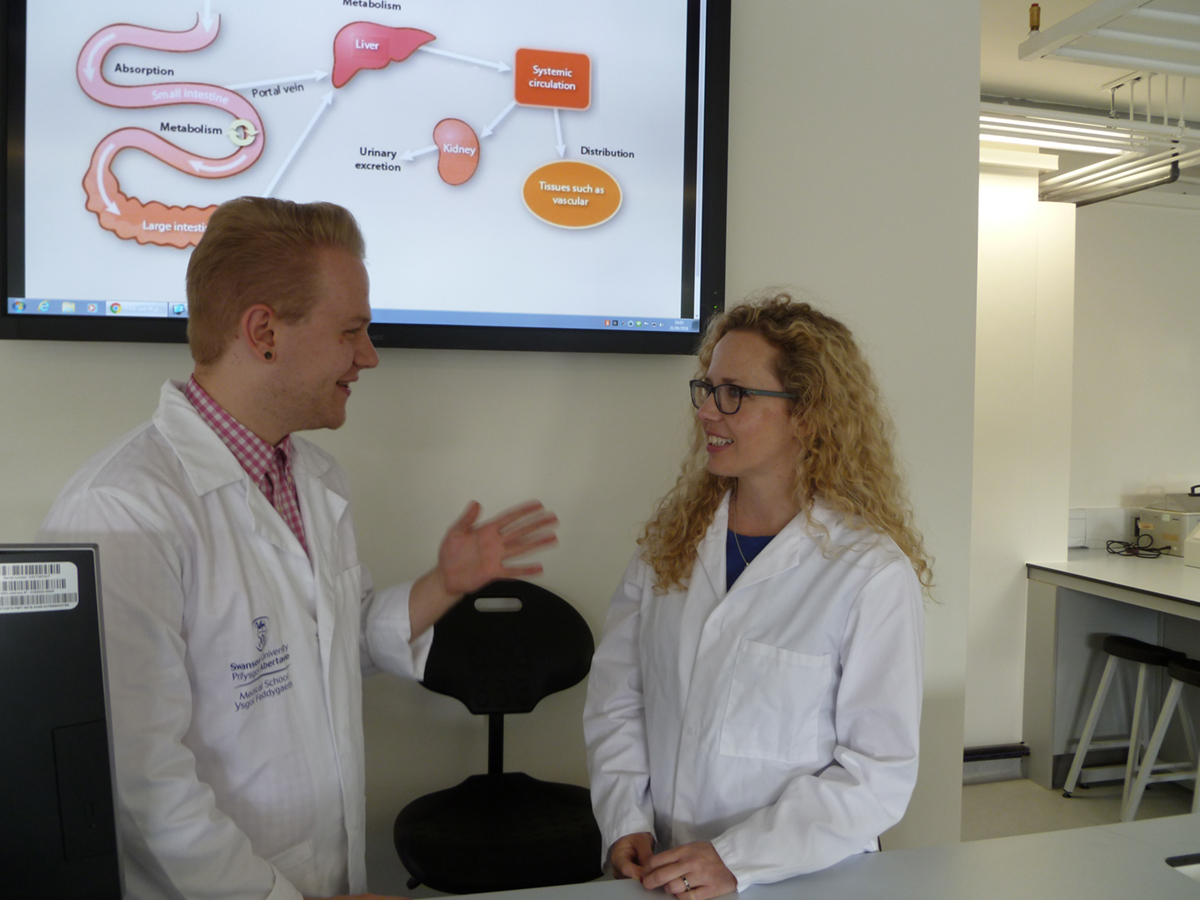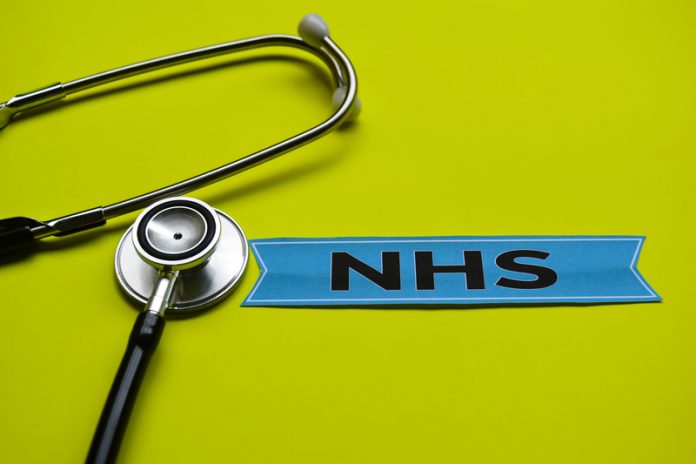Dr Lisa Wallace, Course Director from Swansea University Medical School explains their exciting new Medical Pharmacology degree which “could help reduce the NHS financial burden”
A new Medical Pharmacology course at Swansea University Medical School could help reduce prescribing error costs incurred by the NHS.
A recent report commissioned by The British Pharmacological Society and produced by PWC has estimated the financial costs incurred from inappropriate and inefficient medicines use and prescribing error as £826million.
The report title “Clinical Pharmacology and Therapeutics: The case for savings in the NHS December” reveals that if the NHS recruited more clinical pharmacologists the cost of human prescribing error could be significantly reduced.
Dr Lisa Wallace, course director of the new Medical Pharmacology at Swansea University Medical School and a Vice-President of The British Pharmacological Society (BPS), said the new Pharmacology degree at Swansea will ensure students gain a solid pharmacology understanding – before they pursue a career in medicine – which will help create an upskilled NHS workforce and in turn help reduce prescribing errors.

Dr Wallace explains: “We believe that by giving our students – who are potentially our future clinicians – a really strong grounding in medical pharmacology this can work towards significantly reducing the cost currently incurred by the NHS.
“The BPS report states that for every £1 spent to hire additional clinical pharmacologists has the potential to reduce NHS costs by almost £6.
“This new degree is the first step in a career as a clinical pharmacologist. Clinical pharmacologists are trained doctors who focus on the safe and effective use of medicines. They have a multi-faceted role within the NHS which includes treating patients, training other clinicians in prescribing best practice, and the development of innovative new medicines.”
Clinical pharmacologists are specialists in the detection and management of poisoning. They lead specialist poison centres and provide advice to other clinicians. The BPS evidence shows that poisoning costs the NHS up to £226 million and that an additional 78 clinical pharmacologists recruited to the NHS could unlock £6 million of savings.
Helping to reduce financial costs of prescribing errors
Dr Wallace adds: “The BPS report states there is clear evidence that over a long period of time the recruitment of clinical pharmacologists could make significant savings to the NHS.
“Clinical pharmacologists can help reduce the incidence and treatment of Adverse Drug Reactions (ADRs), the detection and management of poisoning, reduce prescription errors, help boost clinical R&D. And as they have an in-depth knowledge of drugs and their interactions, they are also able to improve adherence – which means ensuring that people take their medicines in the appropriate way.”
Medical Pharmacology lecturer Aidan Seeley, who has recently joined the teaching team at Swansea, adds that their new Medical Pharmacology degree will give those students who want to pursue a career in medicine a brilliant understanding of how these errors can be reduced.
He notes: “Our new Medical Pharmacology course provides students with an exceptional level of training and specialist knowledge. This is particularly important for those who want to pursue a future career in medicine.
“It is vital that our future NHS workforce have a strong knowledge and understanding of how drugs work, how they act on the body and how the body metabolises these drugs – this increased knowledge will hopefully reduce prescribing errors and could help reduce the overall financial costs to the NHS in the long term.”
Prescription errors are estimated to be present in 7%-15% of all hospital prescriptions. Many of these errors result from clinicians with insufficient training in prescribing drugs to patients. Clinical pharmacologists spend approximately 10% of their time teaching other clinicians about medicines management and usage. Based on the BPS evidence clinical pharmacologists could potentially unlock up to £18.5 million in savings from fewer prescription errors.
The next big thing in healthcare:
Swansea University Medical School has also launched a new Population Health and Medical Sciences degree programme for September 2018. Population Health has been described as “the next big thing in healthcare” by Monster Jobs.co.uk.
Population Health aims to address health inequalities by understanding the health needs of groups of people and transforming traditional healthcare models to meet those needs.
Professor Phil Newton, Director of Learning and Teaching, says it is a very exciting time for Wales’s number one Medical School. He says: “Swansea University Medical School has once again been named as the UK’s number 3 Medical School – only beaten by Oxford and Cambridge (The Guardian University Guide 2019) – is continuing to expand with the recruitment of new academic staff, the launch of new courses and an expansion of its teaching space across the South West Wales region.
“Our two new undergraduate courses – Medical Pharmacology and our new Population Health & Medical Sciences – are part of our very successful Pathways to Medicine. Our Pathways courses give our undergraduate students the opportunity to progress to our flagship Graduate Entry Medicine programme.
“We are delighted to be able to offer so many courses for undergraduate students which has now allowed us to recruit new academic staff.”
Please note: this is a commercial profile
Dr Lisa Wallace
Course Director
Swansea University Medical School
Tel: +44 (0)1792 602 977











